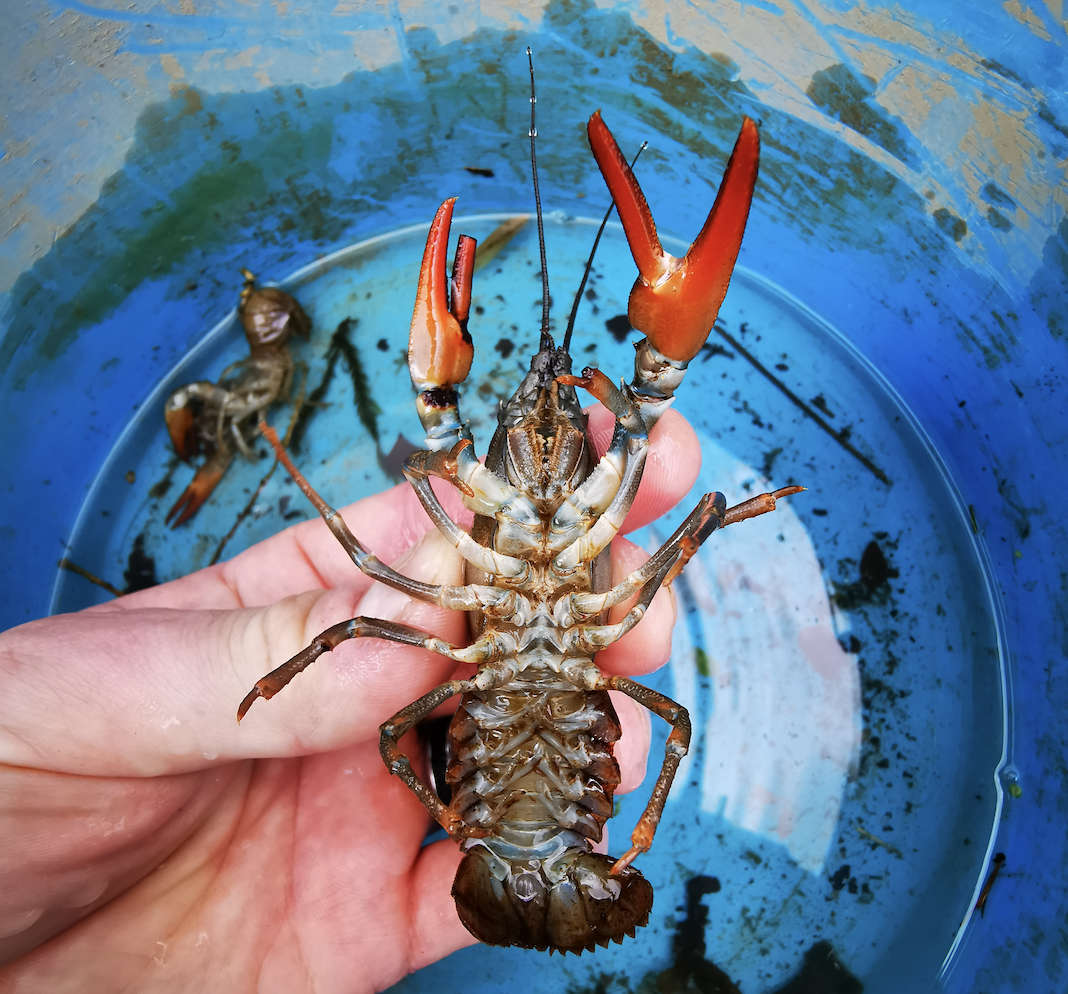
Unleash the hounds!
South West Water is employing dogs to track down crustacean in Devon.
American signal crayfish were introduced to the UK in the sixties, but are now considered invasive and can have a devastating impact on native wildlife.
That's because they feast on a wide range of invertebrates and small fish, and carry a crayfish plague that destroys native white clawed crayfish population.
Now South West Water and South West Lakes have teamed up with Sequor Ecology Detection Dogs to remove American signal crayfish from Burrator Reservoir.
With the help of Sid, an eight-year-old black Labrador and River, a three-year-old Cocker Spaniel– have been used to search areas of habitat suitable for crayfish, such as along riverbanks or edges of waterbodies.
The dogs search for live and dead crayfish to identify presence or likely absence of the species so qualified ecologists can confirm and report the findings to highlight areas for future trapping.
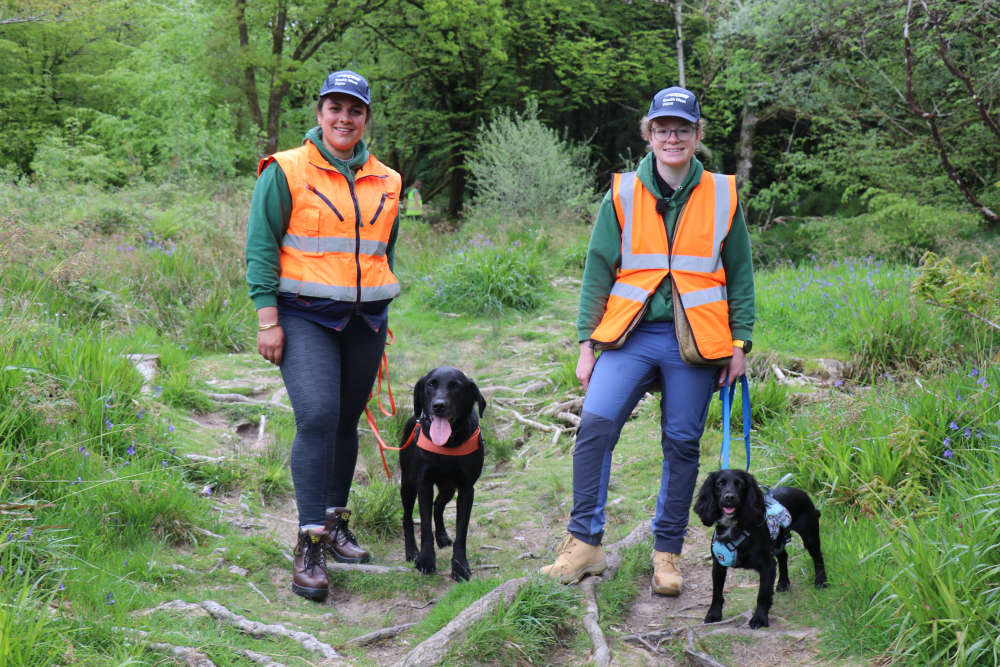
Dog handler's Haleema and Lucy with Sid and River (image courtesy: South West Water)
As well as the dogs, 200 traps were placed over a three-week period, catching around 6,000 invasive crayfish.
South West Water’s biosecurity and invasives manager Kate Hills said: “Invasive non-native species are one of the top five threats to biodiversity and American signal crayfish are recognised as one of the worst.
“This species is currently known to be present in just two of our 21 reservoirs across Devon and Cornwall and by using dogs to search for them, alongside our traditional methods, we can cover a wider area much faster than people can and detect crayfish where there are only limited signs.
Haleema Kara, dog handler at Sequor Ecology Detection Dogs, said: "Sid and River are specially trained to identify areas of potential crayfish activity. The dogs were tested in trials prior to operational searches.”
Lucy Wilde, who is also a dog handler said: “The early identification from the dogs allows us to quickly pinpoint areas where traps can be laid, helping to minimise the impact of the species on the environment.”
 Prime minister hits campaign trail in Devon
Prime minister hits campaign trail in Devon
 Controversial Newton Abbot revamp begins
Controversial Newton Abbot revamp begins
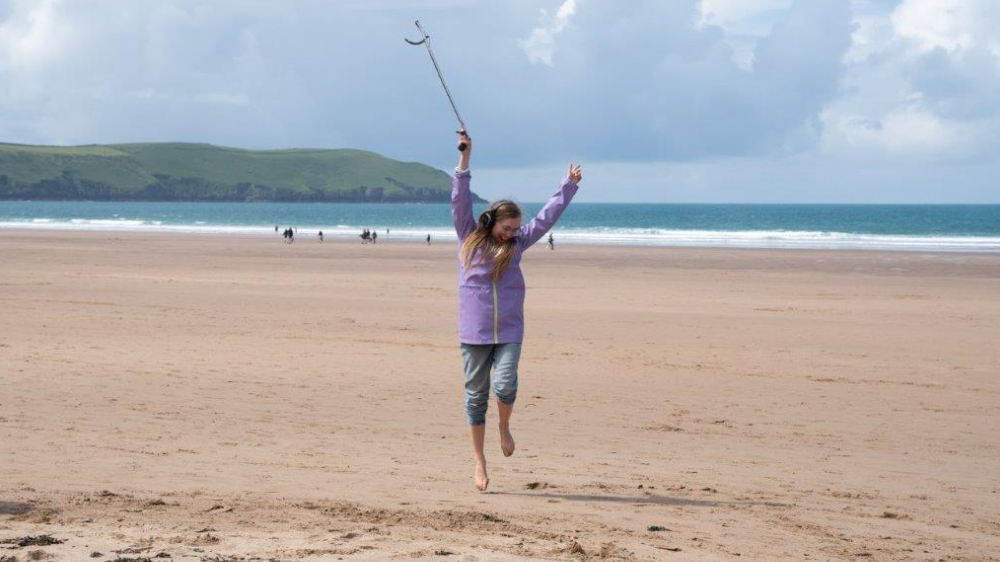 Disco beach clean increases numbers
Disco beach clean increases numbers
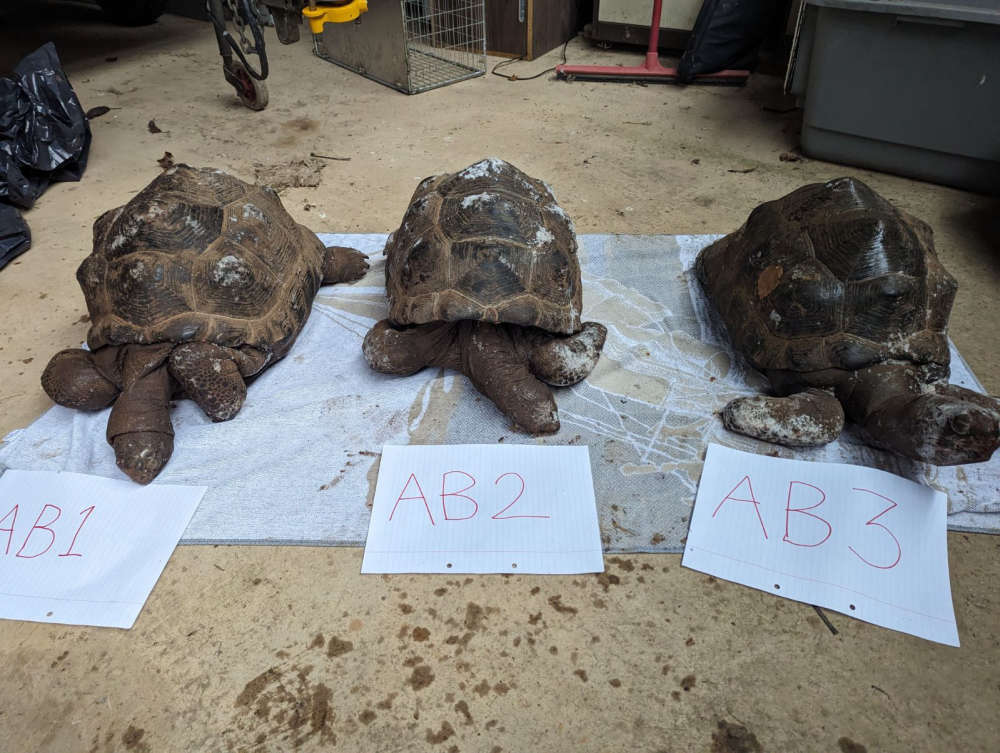 Man ordered to court over tortoises deaths
Man ordered to court over tortoises deaths
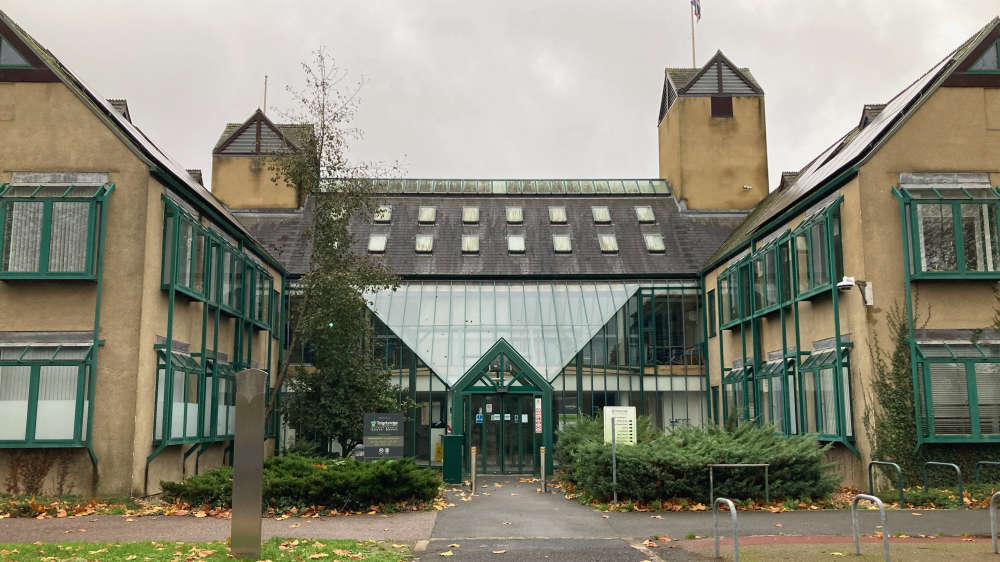 Angry walkout over committee chair choice
Angry walkout over committee chair choice
 Plymouth security guard assaulted
Plymouth security guard assaulted
